Everyone like juice, and it is available in every fruit flavor possible. While we may enjoy it is it something we want to share with our guinea pigs?
Guinea pigs can drink organic/natural unsweetened juices diluted with water from certain fruits. Top of the list are unsweetened juice made from cranberries, apples, oranges, and other fruits strong in vitamin C in a 50:50 ratio of juice and water. My guinea pigs especially enjoy apple juice so they get that one the most!
Table of Content
Is Drinking Juice Good for Guinea Pigs? | Health Benefits
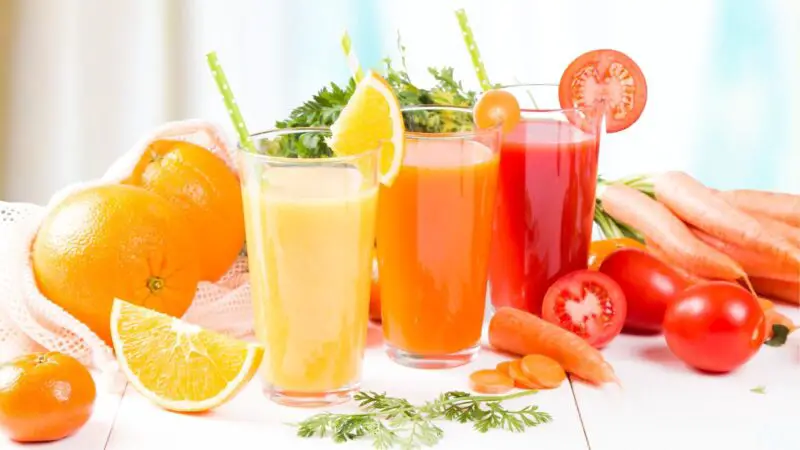
Juices have a lot of vitamins because they are organic and made of fruits. The best antioxidant found in some juices is vitamin A because it protects the whole body from diseases. It boosts the immune system, so the organism is safe against health problems.
Antioxidants remove the free radicals that can damage the immune system and age the body. Vitamin A keeps the lungs, vision, heart, kidneys, skin, and brain in great health.
Vitamin C in juices is the best thing for the guinea pig. This vitamin prevents a disease called scurvy. Its symptoms are no appetite, weight loss, rough coat, bleeding, discharge, and diarrhea.
The iron and copper in juices will contribute to healthier blood. Healthy blood means a good immune system, better health, and less risk of anemia.
Nutrition Facts on Juice
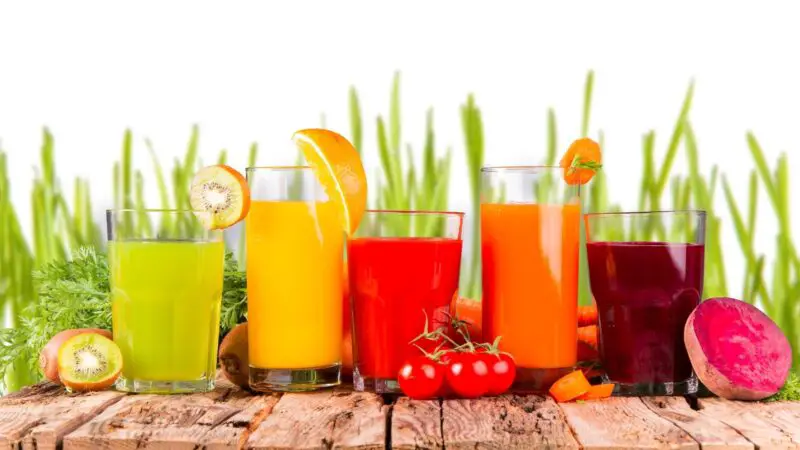
Here are the nutrition facts for 100 g (3 oz) of unsweetened cranberry juice:
- Low in calories – 46
- Moderate in carbs – 12.2g
- Low in protein – 0.4g
- Fiber – 0.1g
- Sugars – 12.1g
- Fat – 0.1g
- Vitamin A – 1%
- Vitamin C – 15%
- Thiamin – 1%
- Vitamin E – 6%
- Vitamin K – 6%
- Riboflavin – 1%
- Vitamin B6 – 3%
- Calcium – 1%
- Iron – 1%
- Phosphorus – 1%
- Magnesium – 1%
- Copper – 3%
- Zinc – 1%
Can Juice Be Bad for Guinea Pigs? | Possible Risks
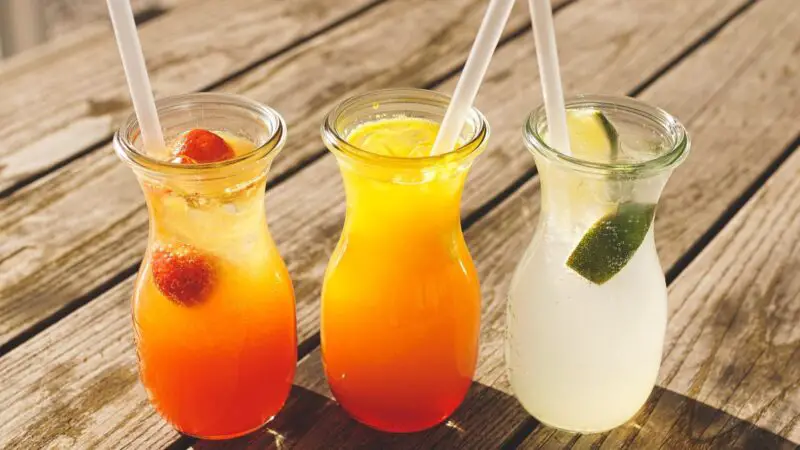
The following risks are caused if juices are given in excess:
- Urinary problems – The majority of juices include calcium and phosphorus. These minerals can be extremely toxic to guinea pigs. Excess calcium and phosphorus in the body can cause kidney and bladder stones, painful urination, bloody urine, and recurrent urinary infections. If not treated promptly, this can result in severe renal failure.
- Digestion problems – Even though the juices are natural, they include sugar. Sugars are difficult for guinea pigs to digest, thus every juice must be diluted with water. Too much sugar at once can cause bloating, cramping, and even diarrhea in the cavy.
- Weight gain – The juices include a moderate quantity of carbohydrates and sugars. If the juice is not diluted with water, the guinea pig will consume a large amount of sugar and carbohydrates, affecting its weight.
Serving Size, Preparation, and Frequency Of Juice
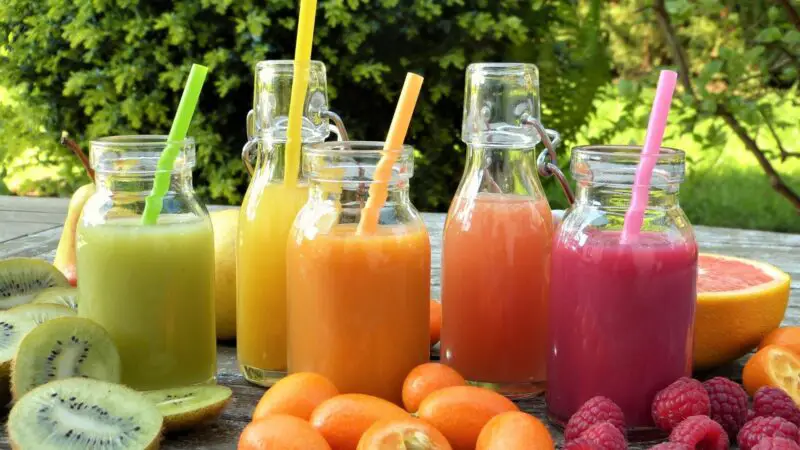
The ideal serving size would be less than the size of the water container in the guinea pigs’ cage. Half of that container can be filled with natural juice that has been diluted. Consider this portion to be just enough for a taste. Once a week is an ideal frequency because, after all, this is a natural fruit that is still tasty.
The preparation is simple. Combine freshly squeezed juice and clean drinking water in a 50:50 ratio. You can add more water to the juice, but not less to the ratio of the juice.
Fun Facts on Juice
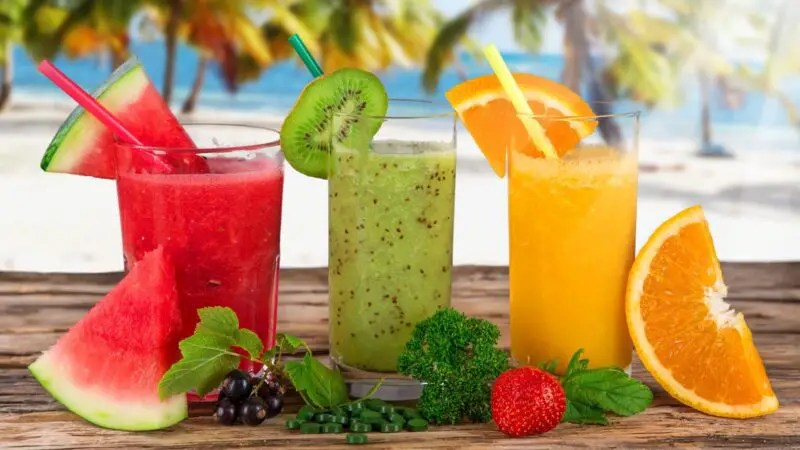
- Rarely, some packages that say ‘100% juice’ are indeed real, unsweetened juice. The sweetness you taste comes only from the natural fruit sugars.
- It is better to store juice in a carton or a dark bottle rather than plastic or see-through glass.
- You can recognize natural juices from artificial ones by just looking at the price, not just a label that says ‘100% natural’.
- Drinking juices remove toxins that otherwise cannot be too easily removed from the body.
- If you consume 6 large carrots, it is the same as drinking 8 oz. carrot juice.
- The green juices are filled with chlorophyll. This helps the body cleanse itself from toxins, and the oxygen flow is much better too.
- On average, natural juices have 80 calories per normal size cup.
- To get the same nutrients from 16 oz of juice, you will need to consume 2 lbs carrots, a dozen apples, or 8 lbs spinach.
- Drinking natural juices can reduce almost any type of inflammation in the body.
We have also made a full list of foods that guinea pigs can and can’t eat (150+ Types of Foods). Be sure to also check our recommended products page for everything you will ever need to assure a happy life for your guinea pigs. Hope this information was helpful and you have found the answer you were looking for.
Related: What Do Guinea Pigs Drink? | Information and Facts!
List of Sources
A Care Guide for Your Guinea Pig (Cavia Porcellus)
How to Care For Your Pet Guinea Pig
The Effects of Diet on Anatomy, Physiology and Health in the Guinea Pig
